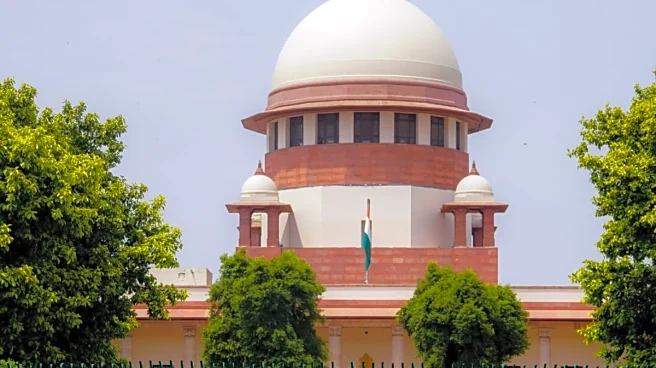The Supreme Court has said that a court should not arrive at a conclusion that the marriage has broken irretrievably just because the parties are living separately. It stressed the need for making a full analysis of the evidence on record in the matrimonial dispute. A bench of Justices Surya Kant and Joymalya Bagchi said, courts, in recent times, often observe that since the parties are living separately, the marriage should be taken to have broken irretrievably. “However, before jumping to such a conclusion, it is imperative upon the Family Court or the High Court to determine as to who out of the two is responsible for breaking the marital tie and forcing the other to live separately,” the bench said. The court opined that unless there is cogent
evidence for wilful desertion or refusal to cohabit and/or look after the other spouse, the finding of marriage having been broken irretrievably is likely to have devastating effects, especially on the children. “The arrival of such a conclusion puts the courts under an onerous duty to deeply analyse the entire evidence on record, consider the social circumstances and the background of the parties, and various other factors,” the bench said. The court allowed in part an appeal filed by a woman and set aside the judgment of September 20, 2019, passed by a division bench of the High Court of Uttarakhand at Nainital. The High Court allowed the appeal of the respondent (husband) and accepted his petition filed under Section 13 of the Hindu Marriage Act, 1955. It dissolved the marriage between the parties by way of a decree of divorce on the ground of cruelty. The parties here got married on May 20, 2009. A male child was born from wedlock on March 07, 2010. Unfortunately, the parties, on account of marital discord, started contesting litigation soon thereafter, with the respondent filing a suit seeking divorce on the ground of cruelty. The said petition was, however, withdrawn by him. Soon thereafter, the respondent filed a second case in 2013 seeking divorce under Section 13(1)(i)(b) of the Act, i.e., on the grounds of desertion. The appellant-woman contested that case. The trial court dismissed the divorce petition on February 15, 2018. The aggrieved respondent preferred first appeal, which was allowed by the High Court by the impugned judgment. The High Court accepted the oral narratives of the respondent with respect to the alleged mental cruelty suffered by him. The apex court felt, “The High Court has, for the reasons best known to it, not adverted to the appellant’s plea that she was thrown out of the matrimonial home and was forced to live separately.” The bench also noted, it is not in dispute that the child is in custody of the appellant from the very beginning. The court said it was imperative upon the High Court firstly to determine as to: (i) Whether the appellant was thrown out of the matrimonial home or she herself voluntarily deserted the respondent? (ii) Whether the withdrawal of the first divorce petition wherein also the divorce was sought on the ground of cruelty, would bar the filing of second petition on the same cause of action? (iii) Whether cruelty was committed by the respondent in not allowing the appellant to join the matrimonial home and/or by denying any maintenance, love, affection, and care to the minor child of the parties? “We do not find that any such exercise has been undertaken by the High Court in the instant case,” the bench said, remitting the matter back to the High Court for a fresh consideration in accordance with law. The court directed the parties to appear before the High Court on November 24, 2025.


/images/ppid_59c68470-image-177070753535599137.webp)












